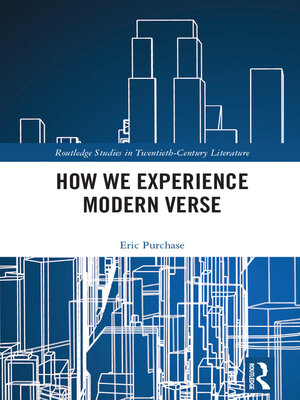How We Experience Modern Verse
ebook ∣ Routledge Studies in Twentieth-Century Literature
By Eric Purchase

Sign up to save your library
With an OverDrive account, you can save your favorite libraries for at-a-glance information about availability. Find out more about OverDrive accounts.
Find this title in Libby, the library reading app by OverDrive.



Search for a digital library with this title
Title found at these libraries:
| Library Name | Distance |
|---|---|
| Loading... |
Poetry moves us. Sometimes a poem changes our life. Then we analyze it as a cultural artifact with no special connection to us. An extensive critical apparatus enables us to develop sophisticated interpretations, but we dismiss as "idiosyncratic" even life-changing experiences of poetry. We need an apparatus to unfold our experience of reading poems into a more effective relationship with the world. Modern poets in particular wrote prophetic verse for this purpose. Archetypal psychology and phenomenology describe the soul that modern poetry moves in us. Three prosodic mechanisms activate the psyche. The polyphony of accentual and quantitative versification creates depth to lure the soul. Aural images reshape the reader's stream of consciousness. Readers follow the movement of blocks of verse across the expanse of the page with what Maurice Merleau-Ponty terms the phenomenal body. These mechanisms reach us at the collective level of consciousness and generate the power we need to solve big, collective challenges, such as race, climate change, and inequality.







